# gst
12 posts in `gst` tag

Big relief for taxpayers: Supreme Court protects buyers from seller’s default
The Supreme Court of India has held that a genuine buyer cannot be denied ITC merely because the seller failed to deposit tax. In M/s Shanti Kiran India Pvt Ltd vs Commissioner, Trade & Tax, Delhi (October 9, 2025), the Court emphasized fairness: action should target the defaulting seller, not the compliant purchaser. While the case arose under the Delhi VAT Act, its reasoning strongly influences GST disputes under Section 16(2)(c). Businesses gain a constitutional shield against automatic ITC denials but must continue robust documentation, vendor checks, and genuine transactions. Example: if you paid ₹100 in tax against a valid invoice and acted in good faith, your ITC right stands.
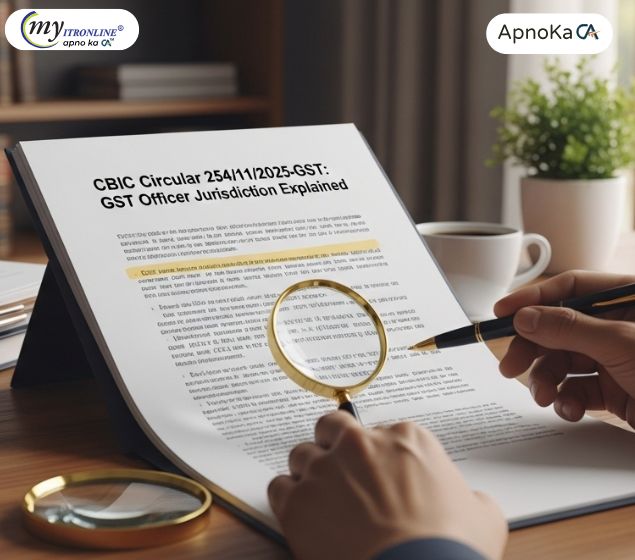
CBIC Circular 254/11/2025-GST: GST Officer Jurisdiction Explained
CBIC has issued Circular No. 254/11/2025-GST to clarify which officers will handle GST cases related to tax, ITC, and penalties under the CGST Act. This blog explains the officer levels, monetary limits, and key sections covered, making it easier for taxpayers to understand who will manage their case.
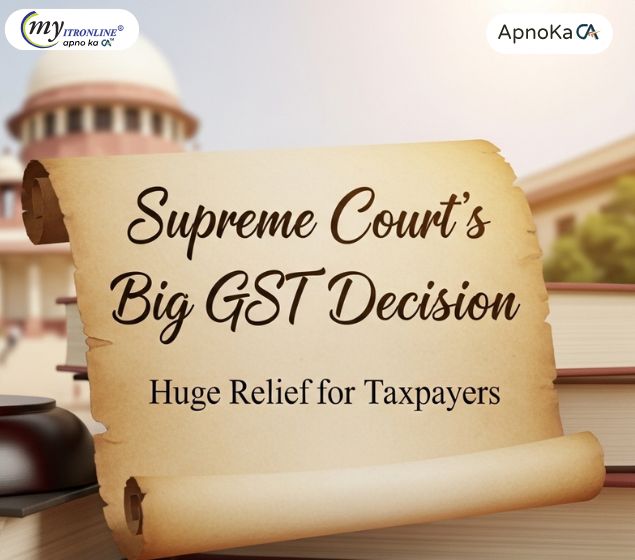
Supreme Court’s Big GST Decision Huge Relief for Taxpayers
The Supreme Court of India has ruled that once a taxpayer pays the 10% pre-deposit required to file a GST appeal, the government cannot freeze bank accounts or recover additional funds. This landmark decision protects honest taxpayers and ensures fair enforcement under GST law.

Great News for Entrepreneurs! Get Your GST Number in Just 3 Days
GST 2.0 is a game-changer for small businesses in India. Starting November 1, 2025, new applicants can opt for a simplified GST registration process with automatic approval in just 3 working days. Designed for low-risk businesses, this reform reduces hassle and speeds up business launch.
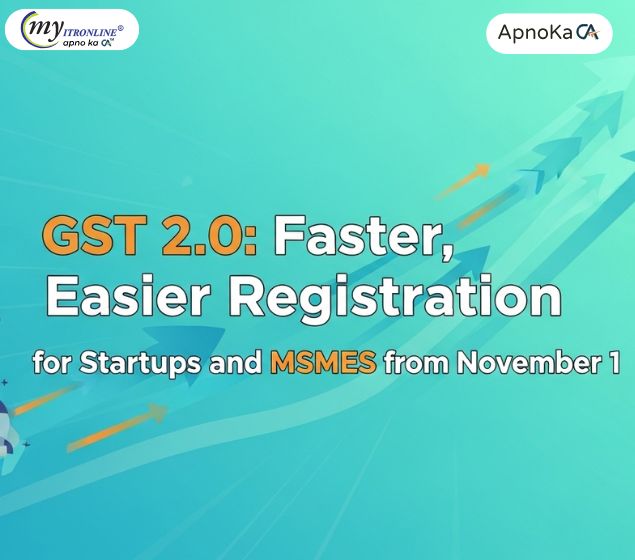
GST 2.0: Faster, Easier Registration for Startups and MSMEs from November 1
From November 1, 2025, small businesses and startups in India can benefit from a simplified GST registration process. This reform promises approval within 3 working days for low-risk applicants and public sector entities. It’s part of the broader GST 2.0 initiative aimed at making tax compliance faster, easier, and more tech-driven. Learn how this change can help you start your business with less hassle and more confidence.
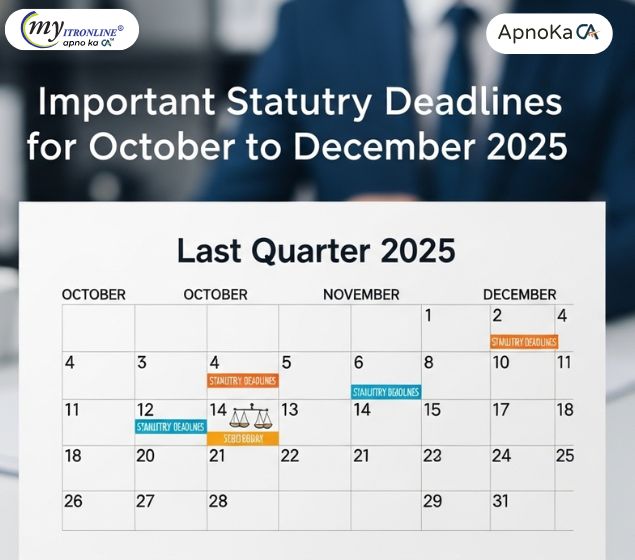
Important Statutory Deadlines for October to December 2025
A concise compliance calendar covering all major statutory deadlines from October to December 2025. Includes GSTR 3B, Tax Audit, ITR filings, TDS Q2, DIR 3 KYC, TP Audit, Advance Tax, ROC filings, and GST annual returns. Stay ahead and avoid penalties with this quick reference guide.
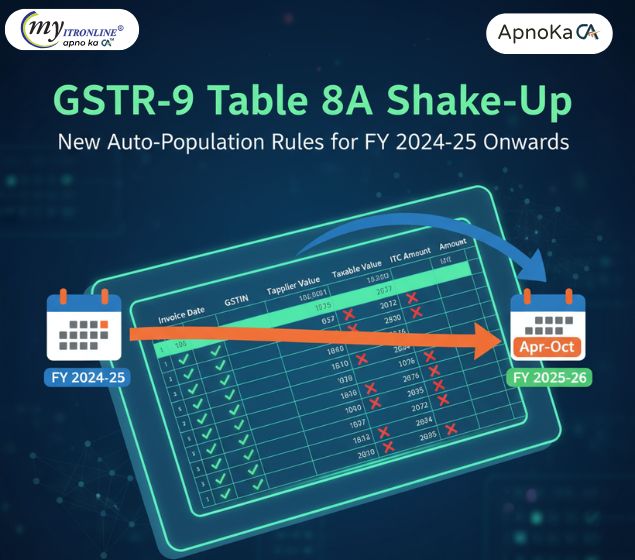
GSTR-9 Table 8A Shake-Up: New Auto-Population Rules for FY 2024-25
GSTN has changed how Table 8A in GSTR-9 is auto-filled. Starting FY 2024-25, it will include invoices from both the current and next financial year, making ITC reconciliation more accurate. Learn what’s included, what’s excluded, and how to prepare.

CBI Nabs GST Officer in Nashik for 5 Lakh Bribe 19 Lakh Seized
The CBI has arrested a Superintendent of CGST & Central Excise in Nashik for allegedly accepting a 5 lakh bribe related to an ITC case. Raids led to the recovery of ₹19 lakh in cash and key documents. The officer is currently in police custody.
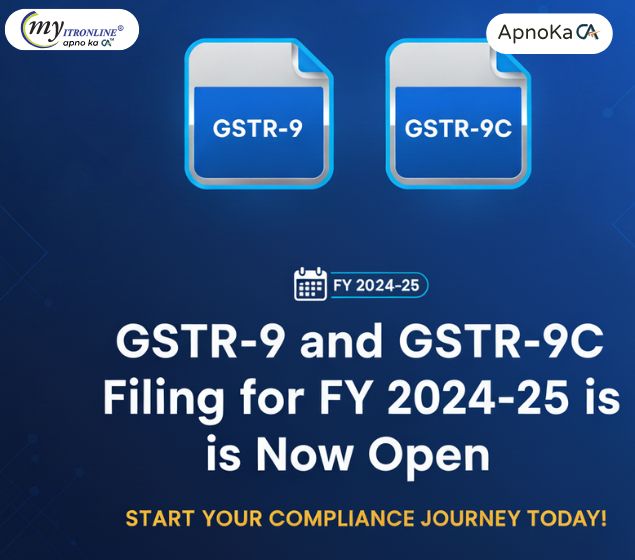
GSTR-9 and GSTR-9C Filing for FY 2024-25 is Now Open
The GST portal has enabled GSTR-9 and GSTR-9C forms for FY 2024-25 starting October 12, 2025. Taxpayers can now file their annual returns and reconciliation statements before the December 31 deadline. Learn who needs to file and how to prepare.

GSTN Clarifies: No Change in ITC Auto-Population from GSTR-2B to GSTR-3B
GSTN has issued a clarification confirming that the auto-population of Input Tax Credit (ITC) from GSTR-2B to GSTR-3B remains unchanged, even after the implementation of the Invoice Management System (IMS). GSTR-2B will continue to be generated automatically on the 14th of every month. This update helps clear confusion and reassures taxpayers that their filing process remains stable.

GST Appeals Made Easier: Lower Pre Deposit Rules Under Finance Act 2025
The Finance Act 2025 brings relief to businesses by reducing the pre-deposit requirement for penalty only GST appeals from 25% to 10%. Tax appeals remain unchanged at 10%. Businesses can now use Input Tax Credit (ITC) for deposits, improving cash flow and easing compliance. These changes will be effective after CBIC notification.
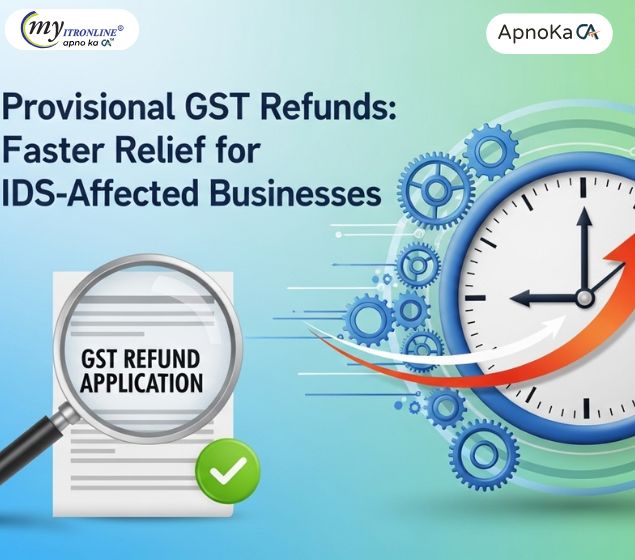
Provisional GST Refunds: Faster Relief for IDS-Affected Businesses
Starting October 1, 2025, businesses affected by inverted duty structure (IDS) can now receive 90% of their GST refund upfront. This move by CBIC aims to ease working capital pressure and improve cash flow for industries like textiles, footwear, and fertilizers. Learn how this change impacts your business and what steps you need to take.
